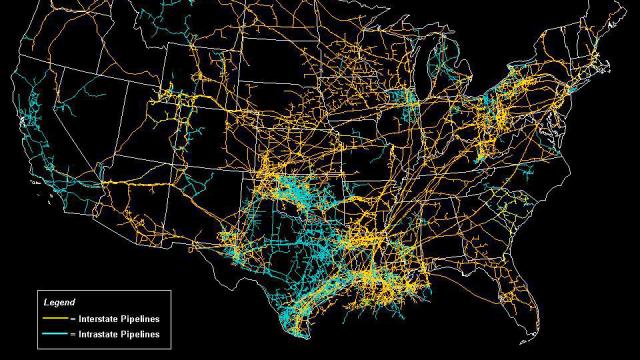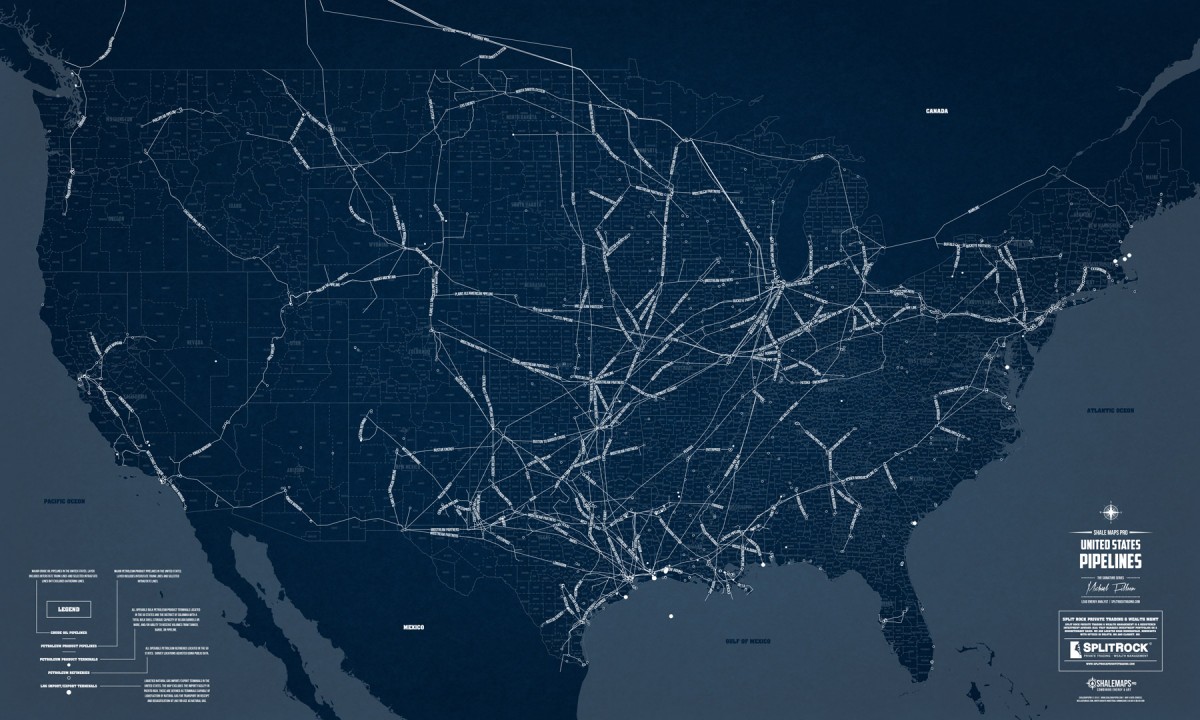
Environmental activists are warning that several major pipeline projects are still up for federal and state approval, even though President Barack Obama has killed Keystone XL — a 1,179-mile line that would have carried carbon-heavy Canadian tar sands oil to U.S. refineries.
The successful battle against Calgary, Alberta-based TransCanada Corp.’s Keystone pipeline has bolstered efforts to block other pending tar sands and natural gas pipelines, and emboldened local communities who oppose such projects, said Lena Moffitt, director of Sierra Club’s Dirty Fuels campaign.
“Keystone set a precedent for people turning up and engaging, and seeing that sometimes you can actually stop this,” Moffitt said. “The fight has already had an impact on pipeline proposals — communities are emboldened and they’re standing up and saying no.”
But three major oil pipeline projects in the Midwest are still pending approval, along with a web of proposed natural gas lines along the East Coast.
The expansion of the cross-border Alberta Clipper pipeline, or Line 67, proposed by Calgary-based energy company Enbridge, would roughly double the existing line’s capacity from 450,000 barrels per day (bpd) to more than 800,000. The pipeline would transport more heavy tar sands oil from Alberta province through Minnesota to refineries in Wisconsin.
But Enbridge’s U.S. State Department permit allows for only 450,000 bpd, and increasing the capacity would require a new permit and environmental review. Because the Alberta Clipper pipeline crosses the U.S.-Canada border, it is subject to the same federal review process as Keystone XL.
However, environmental groups say Enbridge wants to get around the requirements by connecting the Clipper to another pipeline called Line 3 for the trans-boundary section, which crosses into the U.S. in North Dakota before entering Minnesota and ending in Wisconsin.
Diverting the oil from the Clipper to Line 3 just before the border — and then piping it back into the Clipper after crossing — would allow Enbridge to make the increase without needing a new permit.
Eleven U.S. senators, led by Democratic Sen. Al Franken of Minnesota, recently wrote a letter to the State Department demanding answers on how the Line 3 expansion plan was reviewed and approved. The Sierra Club, along with tribal and conservation groups, has brought a lawsuit against Enbridge over what it call its “illegal plans.”
Another of Enbridge’s current projects is the expansion of Line 61 — a pipeline that would span the length of Wisconsin. When finished, the tar sands crude pipeline would have a combined capacity of more than 1.2 million bpd — a third larger than Keystone XL’s.
Communities are pushing back on Line 61 as well. One obstacle to the project's approval came from Dane County, Wisconsin, where residents banded together to persuade the county zoning board to require Enbridge to obtain additional insurance for environmental cleanup in the event of an oil spill. But state lawmakers soon wiped out that requirement, the Wisconsin State Journal reported.
Many residents say tar sands oil is more hazardous than lighter oil when spilled, because it sinks in water — making it nearly impossible to clean up. In addition, the diluting agent added to the tar sands oil to make it thinner and able to flow through the pipeline is toxic and can release volatile gasses in an accident, environmentalists say.
Enbridge has said its $700 million insurance is sufficient, but critics argue that Enbridge’s 2010 oil spill from its tar sands pipeline in Michigan’s Kalamazoo River cost more than $1.2 billion to clean up. The Kalamazoo spill was the largest inland oil spill in U.S. history, and is still not fully cleared. Residents who lived near the river have complained of numerous health problems after the spill.
Opponents of Line 61 are also organizing with landowners along the proposed route to encourage them not to sign easement agreements, contracts that would allow Enbridge to build the pipeline on their land.
Another place communities are battling Enbridge’s planned pipelines is Minnesota, where indigenous groups say the proposed Sandpiper line — which would carry Bakken crude from North Dakota through Minnesota to Wisconsin — would cut through sacred land.
One of the involved groups, the White Earth nation of the Ojibwe people, relies on a subsistence lifestyle by growing wild rice in the many areas of standing water that dot their land. They say running a pipeline through wetland areas would be irresponsible.
In a small victory for environmental activists, the Minnesota Court of Appeals in September took back the certificate of need the project was given by the state Public Utilities Commission (PUC) in June, the MinnPost reported. That means the PUC must carry out a full environmental assessment and open the process to public involvement before any major work can be done on the pipeline.
Meanwhile, U.S. East Coast communities have fought back against a series of planned natural gas pipelines along the Eastern seaboard.
One of those proposed lines is the $3.2 billion, 300-mile Mountain Valley Pipeline from West Virginia to Virginia. A local couple, the Reillys, joined the fight against the project in Oct. 2014 after receiving a letter telling them the line would cut across two creeks and prized pasture land on their farm.
“Within a day, I was connected with other people who were forming a resistance,” Carolyn Reilly said. Virginia has become an epicenter of the anti-natural gas pipeline movement because of massive projects in the works.
In addition to Mountain Valley, Dominion Resources and its energy partners, including Duke Energy, have proposed a $5.1 billion Atlanta Coast Pipeline that would deliver natural gas from West Virginia to North Carolina. It would pass through sensitive environments over its 564-mile route.
“Essentially, the takeaway is they’re re-plumbing the whole United States,” said Timothy R. Carr, a West Virginia University geologist.
3 WAYS TO SHOW YOUR SUPPORT
- Log in to post comments

















